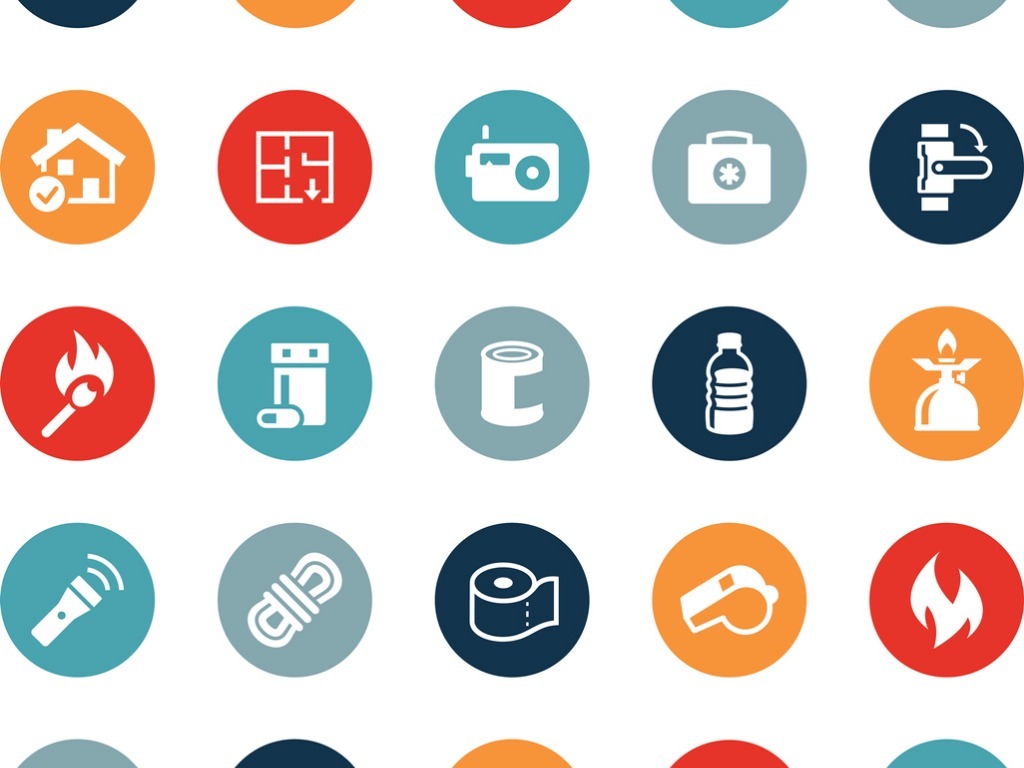
Plan ahead as much as possible and be confident that you’ve done everything you can to prepare explains Julie Perrine
Disasters come in many forms. Some can be handled quickly with minimal downtime. Others can have long-lasting implications on our personal and professional lives.
At All Things Admin, my team and I have plenty of experience dealing with disasters both big and small. Collectively, we’ve dealt with house fires, home and office floods, personal illness, severe weather, wildfire, loss of loved ones, and plenty of other catastrophes and calamities. Recently, we sat down to discuss what we’ve learned from the disasters we’ve faced, and how we can prepare better for them in the future.
While some disasters come with advance warning (hurricanes, tornados, blizzards, etc.), most do not. Office fires and earthquakes don’t appear as an event on your Outlook calendar; you can’t reschedule a cancer diagnosis or an unexpected death in the family. Disasters happen quickly – which is why it’s crucial to do everything you can to prepare for them before they occur.
In honor of National Disaster Preparedness Month, we’ve compiled important information to help assistants around the world deal with whatever life throws their way.
Check Your Insurance Policies
All insurance is not created equal. You may have homeowner’s insurance, but does it cover a flood? If it does cover a flood, will it cover the mold that builds up behind the drywall after the waters recede?
It’s important to know exactly what your insurance policies cover and determine whether you’re adequately protected should the worst happen.
One major thing to consider is whether your policy provides you with Actual Cash Value (ACV) or Replacement Cash Value (RCV). Choose incorrectly and you can lose tens of thousands of dollars if a disaster should occur.
It works like this: ACV will pay you what your lost or damaged items are currently worth. The carpet you installed five years ago has depreciated significantly in that time; the top-of-the-line laptop you bought in 2017 isn’t worth nearly as much as you originally paid for it.
RCV, however, will pay you what it costs you to replace those items. The depreciated value of your couch may have only been $450, for instance, but if it costs you $1,000 to replace it, that’s what your insurance will pay.
If RCV sounds like the better deal, that’s because it is – but you’ll pay for the privilege of having it. This type of coverage is typically more expensive than ACV.
Another thing to pay special attention to is your Additional Living Expenses (ALE) allowance. This is what you’ll use if your home becomes uninhabitable, and it covers things like hotels, short-term rentals, food costs, etc.
One of my team members, who was displaced for four months due to a flood, cautions people not to skimp on their ALE. “It goes faster than you think,” she says, explaining that the hotel bill alone for her family of five was $28,000.
If you rent your home, invest in renter’s insurance. While your landlord is required to carry homeowner’s insurance on your rental, that only covers the structure, not the contents of the home.
Not sure what your policy does and doesn’t cover? Ask! Your insurance agent will be more than willing to explain your policies to you, answer any questions you may have, and update things as needed.
Take Pictures of Everything
If someone sat you down with a pen and a pad of paper, would you be able to list everything in your home or office off the top of your head?
Probably not – which is why it’s so important to have photographic evidence of everything you own.
Take some time to photograph or video every room of your home or office. Open every closet; snap a picture of the contents of every cabinet and drawer.
After a disaster, your insurance company will want a detailed list of everything you owned, right down to how many pair of socks were in your dresser and how many paperclips were in your desk drawer.
Trying to account for everything after the fact can be overwhelming. However, if you have photos and videos, the process will go a lot smoother.
Save your documentation to the cloud and be sure to update it regularly. It’s also a good idea to scan receipts for major purchases as you make them; this will also help to jog your memory and make your list as complete as possible.
If you can get pictures or video during or after the disaster, that’s important, too – but only do so if you can do it safely. Your life is not worth a hastily shot iPhone video taken for insurance purposes!
Develop a Disaster Communications Plan
Disaster can strike anywhere, at any time. And if you and your colleagues or family get separated in the chaos, it can be difficult to communicate when the disaster is ongoing. Cell phone lines get jammed with calls coming in and out; the internet connection may be slow or non-existent.
Now is the time to develop your disaster communication plan, both at work and at home. Ideally, you will have:
- An out of town contact who can act as a liaison if local calls and texts can’t get through.
- A designated meeting place where colleagues and/or family can go to reconnect.
- Primary, secondary, and tertiary escape routes.
- A master list of phone numbers and emergency contacts for everyone in your group.
If you’re developing a communications plan for your office, pass along the information to corporate, human resources, and local authorities. If it’s a plan for personal use, make sure everyone is aware of the drill. Put it in writing and store a copy in a shared OneNote or Dropbox folder so your entire group can access it from wherever they are. Revisit the plan once every six months to a year to ensure it remains up to date.
Have a “Go” Box
As assistants, “organized” is a big part of our job description – but when it comes to a disaster, organization often goes straight out the window. In the moment, you may not remember where important documents and sentimental objects are kept, or you may forget to grab them altogether. There’s also a good chance that you won’t have time to collect everything.
Every home and office should have a “go” box in an accessible location. This box should contain all of your important documents – birth certificates, marriage license, social security cards, insurance policies, financial information, etc. An office go box would contain your procedures binder, spare chargers, important files, and anything else you might need to work remotely for as long as needed.
In the middle of a disaster, the last thing you need to be doing is throwing open cupboards and rifling through drawers hunting for crucial things. Having them all together and accessible allows you to grab the box on your way out the door, confident that you have what you need.
It’s also a good practice to scan important documents and save them to the cloud. While it’s always better to have a physical copy, a scanned image can get you through until your documents can be replaced.
Develop Key Relationships Before You Need Them
Recovering from disaster is an arduous process. There’s no telling what types of professionals you’ll need in your corner – from contractors to insurance agents to restoration technicians. But in the middle of, or immediately after, a disaster is not the time to begin searching for these people.
Instead, start developing relationships with a variety of professionals now, before their services are needed. When your office is underwater or your kitchen is smoldering, you won’t have time to be picky or fully vet any businesses, which could lead to another disaster if their work isn’t completed correctly.
If you have a list of trusted professionals before you need them, all it takes is a phone call to get the ball rolling, allowing you to quickly deal with the situation rather than wasting precious time and money.
Mitigate Disaster Damage By Being Proactive
We can’t control when or where a disaster will strike. What we can do is plan ahead as much as possible, allowing us to face disaster head on, confident in the knowledge that we’ve done everything we can to prepare.
Hopefully, you’ll never need the plans you put in place. But you’ll be glad you have them if and when your life is touched by disaster.












